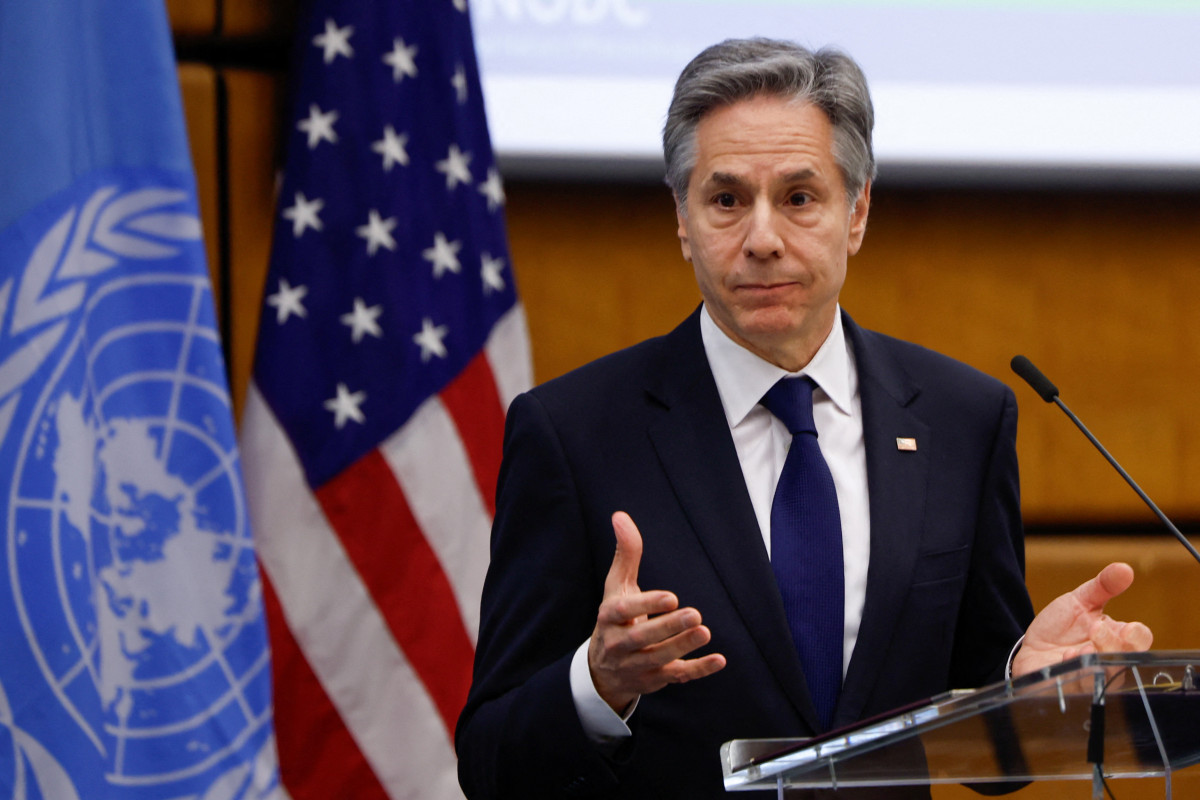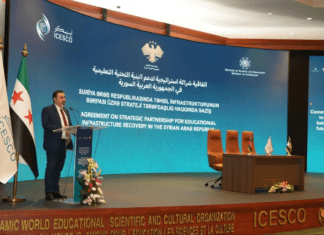
The Biden administration has begun early-stage discussions with Hayat Tahrir al-Sham (HTS), one of the groups’ instrumentals in the ousting of the dictator Bashar al-Assad, urging it to prioritize an “inclusive political transition” over direct control of the country. US officials emphasized that the formation of a transitional government must “represent all Syrians” to gain international legitimacy.
The talks, confirmed by two US officials and a congressional aide, are being coordinated with key regional allies, including Turkey. The US remains cautious about HTS, which it previously designated as a terrorist organization, given its roots as an al-Qaeda offshoot and its controversial leader, Abu Muhammad al-Jolani, now using his legal name Ahmad al-Sharaa.
The discussions are part of US efforts to stabilize Syria following Assad’s collapse on Sunday. Officials have communicated with HTS, stressing the importance of a credible, inclusive governing body, consistent with United Nations Security Council Resolution 2254.
“The United States will not support HTS unilaterally controlling Syria without a legitimate, formal process to select new leaders,” one official told Reuters on condition of anonymity. Messages from Washington encouraged HTS to focus on uniting revolutionary groups and building a governance framework that aligns with international expectations of transparency and minority rights.
Secretary of State Antony Blinken outlined Washington’s vision for Syria’s political future on Tuesday, stating, “We will recognize a future Syrian government that reflects the will of its people and ensures inclusivity, accountability, and non-sectarianism.”
Hayat Tahrir al-Sham, which emerged from the al-Qaeda-linked Nusra Front, is a controversial actor in Syria. In 2013, the US designated al-Jolani as a terrorist. While HTS has attempted to rebrand itself in recent years, some doubt the transformation while some analysts lobby for its delisting.
A senior US official noted that Washington has yet to determine al-Jolani’s role in Syria’s future governance. “We’re evaluating whether HTS is willing to move beyond its past and work within an inclusive, democratic framework,” the official said.
Some members of Congress are urging the administration to consider relaxing sanctions on Syria, including those targeting HTS if the group meets US conditions. A congressional aide cited growing concern that sanctions are impeding Syria’s reconstruction and access to the global economy. “There’s a recognition that a transitional government will need international support to rebuild the country and gain legitimacy,” the aide said.
The US continues to maintain a military presence in northeastern Syria, focusing on countering ISIS and deterring Iranian-backed militias from exploiting the power vacuum. US Central Command Commander General Michael Kurilla recently visited Syria, reinforcing the Pentagon’s commitment to preventing an ISIS resurgence.
The State Department also highlighted concerns about Syria’s remaining chemical weapons. “The new leadership must take immediate steps to secure and eliminate any chemical weapons stockpiles,” a department spokesperson said.
The Syrian Salvation Government (SSG) released a statement last week declaring its “readiness to cooperate with the international community in all matters related to ensuring the security of sensitive sites and preventing the use of prohibited weapons. We will seek to provide all necessary guarantees to ensure the prohibition of the use of chemical weapons.”
The Biden administration has initiated briefings with President-elect Donald Trump’s team on Syria policy, ensuring continuity during the transfer of power. Deputy National Security Advisor John Finer confirmed that US forces would remain in Syria for “the foreseeable future” to complete “an important mission.”
The fall of Assad marks a pivotal moment for Syria, but challenges remain in unifying the fractured country and fostering long-term stability. As HTS navigates its role in the transitional process, Washington’s insistence on inclusivity and accountability may prove decisive in shaping Syria’s next chapter.
“We must ensure this historic opportunity is not wasted,” Blinken said. “Syria’s future must be determined by its people – not through coercion or external interference.”








